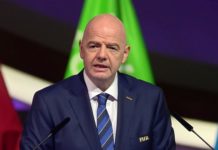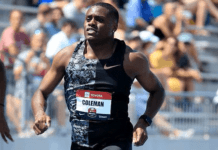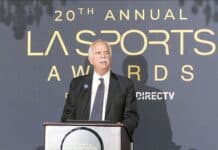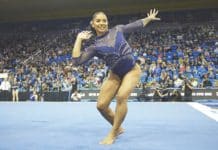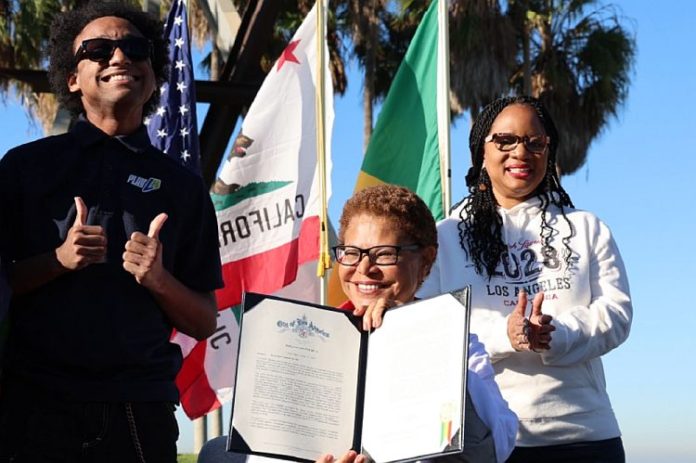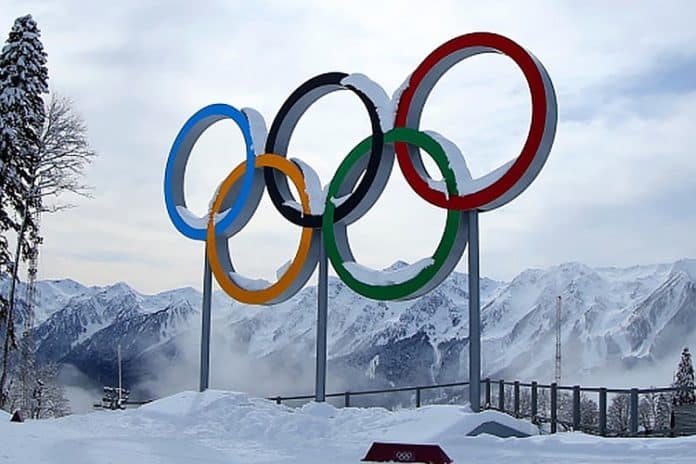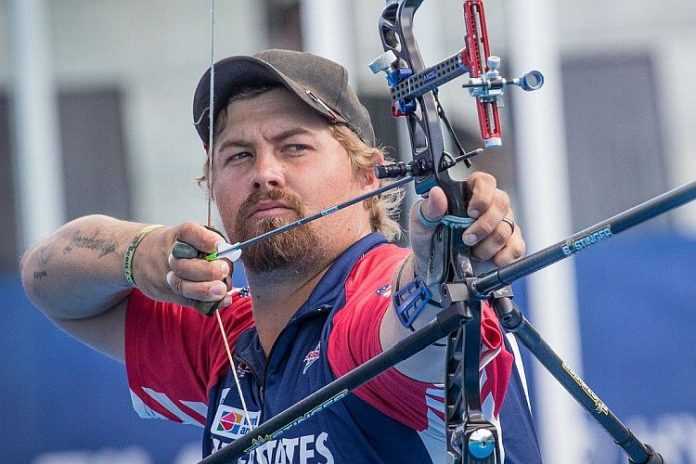★ The Sports Examiner: Chronicling the key competitive, economic and political forces shaping elite sport and the Olympic Movement.★
★ To get the daily Sports Examiner Recap by e-mail: sign up here! ★
≡ L.A.’s “GAMES FOR ALL” VISION ≡
“The “Games for All” will deliver a vision measured not only in medals and memories of iconic moments, but also in thriving neighborhoods, restored civic engagement and unity, and a Los Angeles that works better for all.
“Already, Angelenos are stepping up to transform neighborhoods into hubs of resilience and cultural expression where civic infrastructure, culture, and play come together to build thriving communities block by block. Together, the City of Los Angeles will ensure the 2028 ‘Games for All’ creates a more connected, more resilient, and more inclusive future.”
With the countdown to the opening of the Games of the XXXIV Olympiad reaching 1,000 days to go on Friday, 17 October, Los Angeles Mayor Karen Bass signed Executive Directive no. 16 at a ceremony at Venice Beach, an eight-page order which instructed the City’s departments to work together to ensure that the 2028 Olympic and Paralympic Games are allowed to be held without unnecessary delays from the City bureaucracy.
The preamble to the actual directives repeated the political ambitions of Bass and the City Council for an “An Inclusive City For All,” “A Thriving City For All,” “A Vibrant City For All,” summarized in a flashy, 28-page “Games For All” Vision document.
The directive itself was more concrete, with some important instructions for City departments:
● “The Office of Major Events shall coordinate all City departments and engage external stakeholders to ensure the City’s preparedness for the 2028 Games and other major events, to create positive economic impacts for the City and its residents, and to advance other crucial priorities to ensure that all Angelenos benefit from these coming opportunities.”
The office was formally “confirmed” in the Directive and is headed by former City Council President Paul Krekorian. It has been in operation since 5 December 2024.
● Three working groups were established to coordinate Games planning, including (1) Operations (city services, utilities, public safety), (2) City Games Mobility (planning, cultural affairs, disability, public works, recreation and parks, transportation, water and power), and (3) Development Services (business and economic development in coordination with planning, building and safety, public works, transportation, water and power and others).
● “I hereby direct all applicable City departments to conduct and conclude all of the City’s initial building permitting reviews required for 2028 Games projects, and to complete all appropriate reviews for such projects within 45 days following the submission of a complete application.”
This is part of a streamlined permit process related to the 2028 Games, especially for temporary installations required at the competition and support sites.
● And the Directive goes further, asking the Building & Safety department, in coordination with others, to “report back within 30 days on a Self-Certification Pilot Program for 2028 Games Critical Projects. This self-certification procedure, conducted by a licensed architect or engineer, shall aim to ensure that projects essential for the 2028 Games are permitted and constructed efficiently while maintaining the highest standards of safety and compliance.”
That could help LA28 considerably, but could raise questions from critics over a lack of review over safety issues, especially as time gets tight. Zoning and Historic-Cultural reviews and the Special Event permit process are also directed to be prioritized for Games-related projects.
● An important opportunity for the City was finally grasped by the Directive:
“Within 90 days, the Departments of Recreation and Parks, Cultural Affairs, and General Services, the Bureau of Engineering, and the City Administrative Officer shall work with the Office of Major Events and Mayor’s Office of International Affairs to complete an inventory of City-owned facilities that can be made available for use by external stakeholders up to three months ahead of the 2028 Games and one month after the end of the 2028 Games.
“These spaces may include iconic and historic locations, theaters, and City-owned parking lots or open space not associated with a park that could hold temporary structures. The inventory shall include information that would be helpful for firms or agencies, such as whether the facility is appropriate to rent, including but not limited to square footage, floorplans, disabled access compliance, and amenities. Where available, departments should provide high-quality photos of the facilities.”
The potential clients for such rentals are obvious: International Federations, National Olympic Committee, sponsors and others related to the Games (or who want to be related at the time of the Games). The City is late on this, but is now awake.
Observed: The instructions from Bass are long overdue, but here they are and following on the City Council process which included public input on streamlined permitting, are helpful to the LA28 cause.
During the City’s brutal budget process in the spring, in which a $1 billion gap had to be closed with help from the City’s many labor unions, it was stated by Mayor’s Office representatives that there was no comprehensive City plan for the 2028 Games.
There still isn’t and the “Games For All” Vision document is more hope than plan. But this Directive now places the City bureaucracy at the center of its preparations for 2028 and with increasing speed in planning from the expanding LA28 organizing committee, the framework for success is beginning to be built.
For the success of the Games, the coordination with LA28 is paramount and will be decisive. The more the City is helpful and cooperative, the more the pressure shifts to LA28 to offer concrete plans which can be implemented with City assistance on permits and services. That’s good.
For the City, finally there is the direction to look at City assets which can be rented or otherwise used for Games support. This has to expand to the L.A. Unified School District, with 1,543 schools and centers and endless possibilities for usage for teams, projects, fan festivals and the like, especially at its 86 senior high schools.
The wheels are beginning to turn. The political goals about inclusivity, vibrancy and a thriving city are up to the City itself and not about the Games. But perhaps by emphasizing saying “yes” instead of “no” – related only to the 2028 Games for a start – the City of Los Angeles can find a future way forward. It has before.
¶
★ Receive our exclusive, weekday TSX Recap by e-mail by clicking here.
★ Sign up a friend to receive the TSX Recap by clicking here.
★ Please consider a donation here to keep this site going.
For our updated, 850-event International Sports Calendar for 2025, 2026 and beyond, by date and by sport, click here!










